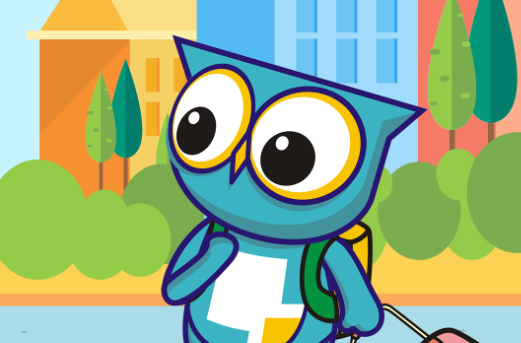咸阳高考冲刺班,2021年高考英语“情态动词”语法资料分享!各位学生注意了,较近很多学生咨询老师关于咸阳高考英语冲刺班的相关情况,还有学生问英语的学习资料。下面,伊顿教育咸阳高考冲刺老师为大家整理了英语较难学的语法知识点资料,大家先来领取!

咸阳高考冲刺班,2021年高考英语“情态动词”语法资料
情态动词的意义和用法
A. may和might
1.表示请求、许可,常译为“可以”。
在口语中可用can, could代替may,但在正式场合用may。表示允许时,也可用might代替,might不表示过去时,而是表示口气比较婉转。
提示:
May I ...问句常见的肯定回答和否定回答。
肯定回答
Yes, please.
Certainly.
Yes, of course.
Sure.
Go ahead, please.
否定回答
No, you can't.(较常见)
No, you mustn't.(具有强烈禁止的意思)
Please don't. You'd better not.
I don't think you can.
I'm sorry it's not allowed.
2.表示推测,可译为“可能,也许”。
Your math teacher may/might be in his office.
你们的数学老师可能在办公室里。(一般情况下,might表示的可能性很小)
注意:
用may表示推测一般不用于疑问句,在疑问句中通常用can来代替。
Can he be at home
他可能在家吗?
--- Can it be true
这可能是真的吗?
--- It may be, or may not be.
可能是,也可能不是。
3.用在目的状语从句中,构成谓语。
He wants to take a taxi so that he may get there in time.
他想坐出租车,这样他就能及时到达那里。
I arrived at the airport earlier in order that I might meet him.
我早早地就到了机场为了能接到他。
4.有时可以用于祈使句表示祝愿。
May you succeed.
祝你成功
B. can和could
1.表示能力,可译为“能,会”。
I can swim.我会游泳。
Emily can dance well and her mother could dance well when she was young.
艾米丽舞跳得很好,她妈妈年轻时舞跳得也很好。
2.表示允许、许可,常用在口语中。could比can语气上要客气。
--- Could I use your dictionary
我可以用一下你的字典吗?
---Yes, go ahead.
可以,用吧。(或Yes, you can.但不能说Yes, you could.)
3.表示推测,可用于肯定句(can罕见)、否定句和疑问句,但更常见于疑问句或否定句。在此种用法中can和could没有时态的区别,只是表示可能性的大小,can表示推测的可能性比could大。
Can he be ill at home
他会是生病在家吗?
4.表示惊异、怀疑、不相信等态度,主要用于否定句和疑问句中。
How can you be so careless
你怎么这么粗心?
Where can could they have gone
他们会去了哪里?
5.Could可以用在虚拟条件句中。
If I could fly, I should be very happy.
如果我能飞,我会很高兴。
If you had followed my advice, you could have finished it.
如果你当时听我的,你早就做完了。
6.can与be able to的区别
①can表示“能力”时,和be able to相当,许多场合都可以互相替换。但当叙述过去经过一番努力才能完成的事情或前面有特殊说明,表示你有能力时,只能用be able to。
【正】Can you speak any foreign languages
你会说外语吗?
②be able to比can有更多形式。
No one could answer the question.
没人能回答这个问题。(这里could可用was able to代替)
When he grows up, he will be able to support his family.
他长大后就能养家了。
③could经常和动词see, hear, smell, taste, feel, remember, understand等连用。
When we went into the house, we could smell something burning.
④在谈论说话时发生的动作,用can,不用be able to。
【误】Look! I'm able to swim.
【正】Look! I can swim.
看,我会游泳了!
C.must和have to
1.must表示有做某一动作的需要或义务,强调主观看法,可译为“需要,应该”。
Everyone must obey the rule.
人人都需要遵守制度。
2.have to表示因客观需要促使主语不得不做某事。
You can't turn right here. You have to turn left.
你不能在这里右拐,你需要左拐。
My eyesight is very poor. I have to wear glasses for reading.
我的视力很差,看书时不得不戴眼镜。
提示:
在口语中,我们可以使用have got to来代替have to.
I've got to work on Sunday.
我不得不星期天工作。
When has Ann got to go
安需要什么时候走?
3.must与have to的比较。
must与have to在表示“需要”这个意思时意义相近,但在用法上有所区别。
①must含有说话者的强烈决意(表示主观的看法),have to则表示外力环境或习惯使然(即表示客观的需要,作“不得不”解)。
I must study hard.
我需要努力学习。(发自内心的决定)
②must只有一种形式,而have to可有多种时态。
They had to put off the sports meet due to the bad weather.
由于坏天气,他们不得不推迟运动会。
These last two days he has had to take a rest at home.
这两天他需要一直在家休息。
③must的否定式和have to的否定式的意思完全不同。
You must keep it a secret. You mustn't tell anyone.
你需要保密,你不可以告诉人。(mustn't表示“禁止”)
You don't have to tell me the secret.你不必告诉我这个秘密。
(don't have to意思是“没有需要”= don't need to)
4.must用于表示推测,它的肯定程度比may, might, could大得多,一般只用于肯定句。
①must do (这里的do通常是状态动词或系动词),表示对现在状态的推测。
He must be very lazy for his desk is very untidy.
他肯定很懒,因为他的课桌很不整洁。
②must be doing表示对现在动作或状态的推测。
Put on more clothes. You must be feeling cold with only a shirt on.
多穿点儿衣服,你只穿一件衬衣,肯定觉得冷。
③must have done表示对过去的动作或状态的推测。
The ground is wet. It must have rained last night.
地面是湿的,昨晚肯定下雨了。
I didn't hear the phone. I must have been asleep.
我没听见电话铃响,我是睡着了。
提示:
must表示推测只用于肯定句,否定句和疑问句要用can, could来代替must。
He's just had his lunch. He can't be hungry already.
他刚吃过午饭,不会饿的。
5.must可用来表示根据逻辑推理必然要发生的事,可译为“必然会,总是会”。
We all must die.
我们都会死。
6.must有时可用来表示“偏偏”的意思。
Why must it rain today
为什么偏偏在今天下雨?
D.will和would
1.will和would可用于第二人称疑问句,表示请求和建议等。would比will委婉客气。
Will you have some tea
你喝点茶,好吗?
必背:
Will/Would you ...表示请求和建议的答复。
肯定回答
Yes, please.是的,请。
Certainly.当然可以。
Sure.当然了。
All right.好啊!否定回答
I'm sorry. I can't.对不起,不行。
No, thank you.不,不行。
No, I won't.不,不行。
2.will和would可表示意志、愿望和决心,用于各种人称陈述句。
I will do anything for you.
我愿为你做事。
I will never tell you the secret.
我永远不会告诉你这个秘密。
None is so blind as those who won't see.
不愿看的人眼睛较瞎。
They would not let him in because he was poorly dressed.
他们不让他进去因为他衣着破旧。
3.will和would可表示某种倾向或习惯性动作。will表示现在的习惯动作,would表示过去的习惯动作。
He will surf the Internet every night.
他每天晚上都在上网。
4.will可表示固执坚持,这时will不可使用'll的简略形式。用于非人称主语时,表示物体的固有性质和倾向。
I will take the job, and no one can stop me.
我就要这个工作,没有人可阻止我。
He won't do what he's told.
他就是不愿按所吩咐的去做。
5.will表示将来时间时,不可用于条件状语从句,但will表示意愿或决心时,可用于条件状语从句。
If you will read the book, I'll lend it to you.
如果你愿意读这本书,我会把它借给你。
If you will give up smoking, your health will improve.
如果你愿意把烟戒掉的话,你的健康状况就会好转。
6.will和would可表示推论或猜测。
The patient took the sleeping pills an hour ago. He will be asleep now.
病人一小时前吃的安眠药,现在应该睡着了。
比较:
Would you like ...表示邀请
Do you like ...表示习惯
——Do you like going go the cinema
你喜欢看电影吗?
E.shall和should
1.shall
①表示征询意见或请求指示,用于一、三人称疑问句。
Shall I carry it for you
我来帮你搬它,好吗?
Shall we sing a song
我们唱一支歌,好吗?
2.should
①表示义务,意为“应该”(某件事宜于做),用于各种人称。
Children should obey their parents.
儿童应该服从他们的父母。
One shouldn't be selfish.
人千万别自私。
②常与what, how, why等词连用,表示意外、惊讶等情绪。
How should I know
我怎么会知道呢
Why should I fear
我为什么会害怕?
③表示对过去、现在或将来情况的某种推测,可译为“可能、照说应该”。
It should be fine tomorrow.
明天可能天是晴天。
He should be taking a bath now.
他可能在洗澡。
④表示对现在或以前的动作的责怪、批评(应做的事却没做)。
The boys shouldn't be playing football. They should be at school.
这些男孩子不应该在踢足球,他们应该在上课。
You shouldn't have entered the teachers' office without permission.
没有允许你们不应该进老师办公室。
F.ought to
1.表示义务,意为“应该”(因责任、义务而该做),口气比should稍重。
We ought to defend our country.
我们应当保卫我们的。(每一个公民应尽的义务)
You ought to respect your parents.
你应当尊敬你的父母。
2.表示推测,暗含很大的可能,可译为“应该是,会是”。
Prices ought to come down soon.
价格可能会很快下跌。
Han Mei ought to know his telephone number.
韩梅该知道他的电话号码。
There's a fine sunset; it ought to be a fine day tomorrow.
今天有晚霞,明天应该是个好天。
3.ought to和should一样,表示对现在或以前应做的事却没做的责怪、批评。
You ought to be washing your clothes. Why are you playing Ping-Pong
你应该在洗衣服(可是你没洗)。为什么你在打乒乓球?
You ought to have handed in the exercise last week.
你上周就应当交练习。(可你没交,含责备的意思。)
4.ought to与should的比较。
ought to和should的含义较近,但不完全相同。ought to表示“应该”,是从“义务”或“按理推断”的角度来讲的。should则是从说话人的个人看法这一角度来讲的。
You are her mother. You ought to look after her.
你是她的母亲,你应当照管她。(是道义上的责任,不能和should互换。)
We should encourage him for we are his classmates.
我们应该鼓励他,我们是他的同班同学啊!
提示:
表示“义务”时,我们在口语中可以用had better或be supposed to来代替should和ought to。
If you are not well, you had better ask Alice to go instead.
如果你不舒服,你较好叫艾丽丝代替你去。
I'm supposed to be there at 8 o'clock.
我应该八点到那里。
G.used to
1.used to表示过去的习惯或过去某时期的状况,但现在已不存在。
He used to drink tea but now he drinks coffee.
他过去总是喝茶但现在他喝咖啡了。(强调现在不喝茶了)
I know where there used to be a river here.
我知道这儿以前哪里有条河。(现在没有河了)
Where did you use to live before you came here
2.would和used to的用法区别。
①used to表示过去与现在或过去某时与后来的情况有不同,强调“现已无此习惯了”,而would只表示过去的情况,与现在无关。
When he was young, he would smoke a lot.
他年轻时总是吸许多烟。(不含有和现在比较,现在他也许还在抽,也许不抽了。)
He used to live in the country, but now he lives in the city.他过去住在乡下,现在住在城里。
②used to可表示过去的习惯动作或状态,而would只表示过去的习惯动作。
Kate used to be very thin.
以前凯特瘦。
There used to be a building at the street corner, but it has been pulled down.
街道拐角处过去有座楼房,现在拆了。(不用would)
③used to可泛指过去的习惯动作或状态,而would表示过去的习惯动作时,往往要带有一个特定的时间状语。
【误】We would play hide-and-seek in the fields.
【正】We used to play hide-and-seek in the fields.
我们过去常在田野里玩捉迷藏。
H.dare
dare既可用作情态动词,也可用作行为动词,指勇气和胆量上的可能,可译为“敢”。
1.情态动词dare
①dare作为情态动词时主要用于疑问句和否定句,一般不用于肯定句中。
I dare not daren't walk through the forest at night.
我不敢在黑夜穿过森林。
--- Dare you walk through the forest at night
你敢在黑夜穿过森林吗?
--- Yes, I dare.
是的,我敢。
--- No, I daren't.
不,我不敢。
②可以用于表示怀疑的名词性从句中。
I wonder how he dare say such things.
我真奇怪他怎么竟敢说出这样的话。
We don't know whether he dare climb the mountain.
我们不知道他是否敢爬那座山。
③可以用于条件状语从句中。
If the enemy dare enter the village, we'll fight against them to the end.
如果敌人敢进入村里,我们就和他们战斗到底。
If you dare cheat in your exam, I will give you some punishment.
如果你们敢在考试中作弊,我就惩罚你们。
2.行为动词dare
①dare可以作为行为动词,多用于肯定句中,但也可用在疑问句和否定句中
He will dare any danger.
他敢面对危险。
②和其他行为动词一样,dare在句子中要随着主语的人称和数发生变化。
He doesn't dare to walk at night.
他不敢走夜路。(作行为动词)
He daren't walk at night.
他不敢走夜路。(作情态动词)
各位学生注意了,以上便是伊顿教育咸阳高考冲刺班的老师为大家分享的2021年高考英语“情态动词”语法资料,想要了解的学生关注!更多免费资料,欢迎大家咨询在线老师!
伊顿教育咸阳高考冲刺班介绍
伊顿为学生提供在线或面授1对1、小班、全寄宿班组、学业规划、创新课程、高考志愿填报等一系列“线上+线下”自由切换、的个性化教育服务。
招生类型班级设置:
招收小升初学生、中、高考补习学生、初高中全科辅导学生、 复读生文化课辅导学生、 校内辅导一对一艺考生、等等。
12个班 高考班12个班(8个理科,4个文科)
详细课程情况,欢迎大家拨打伊顿教育在线电话:400-029-6659




